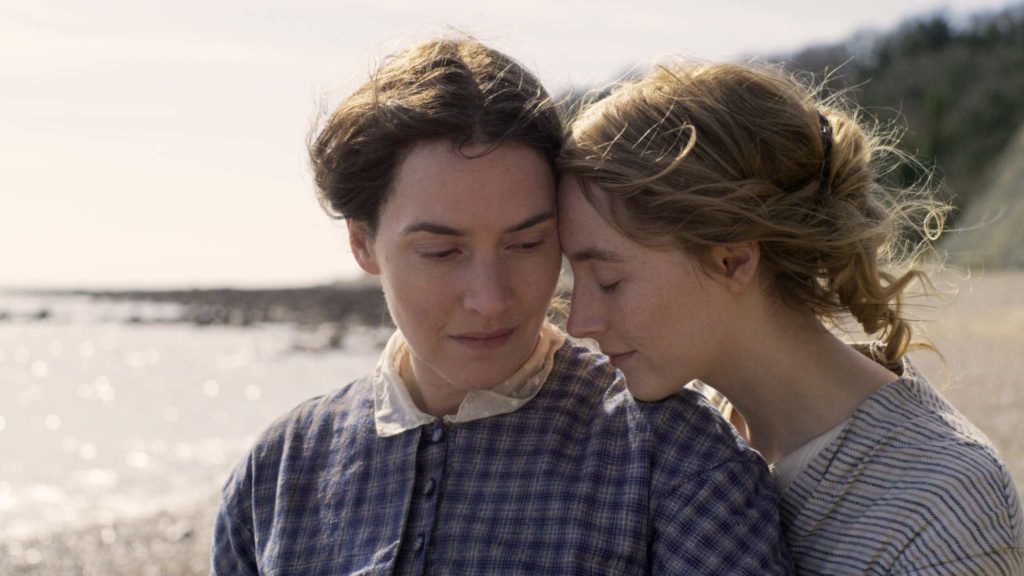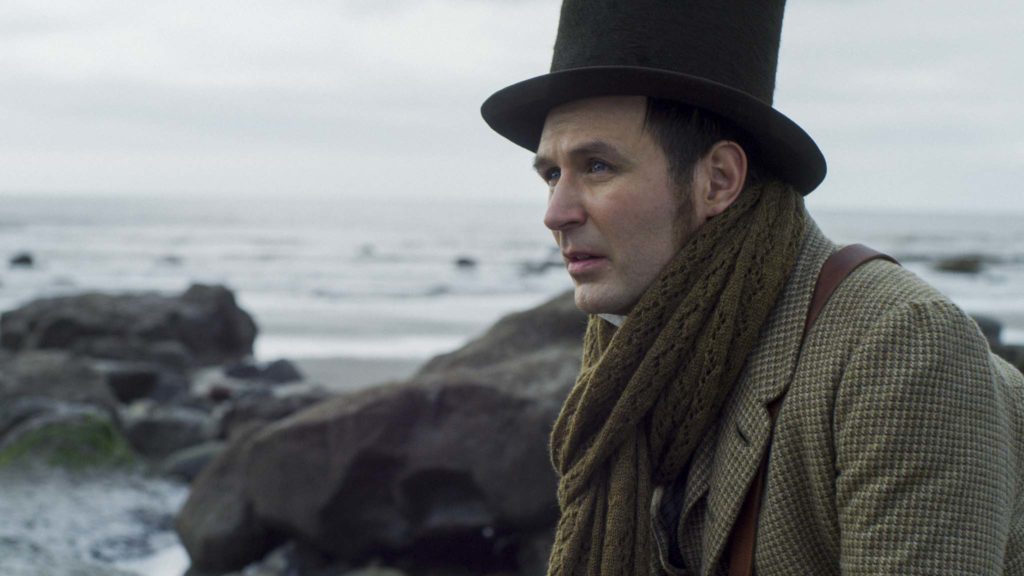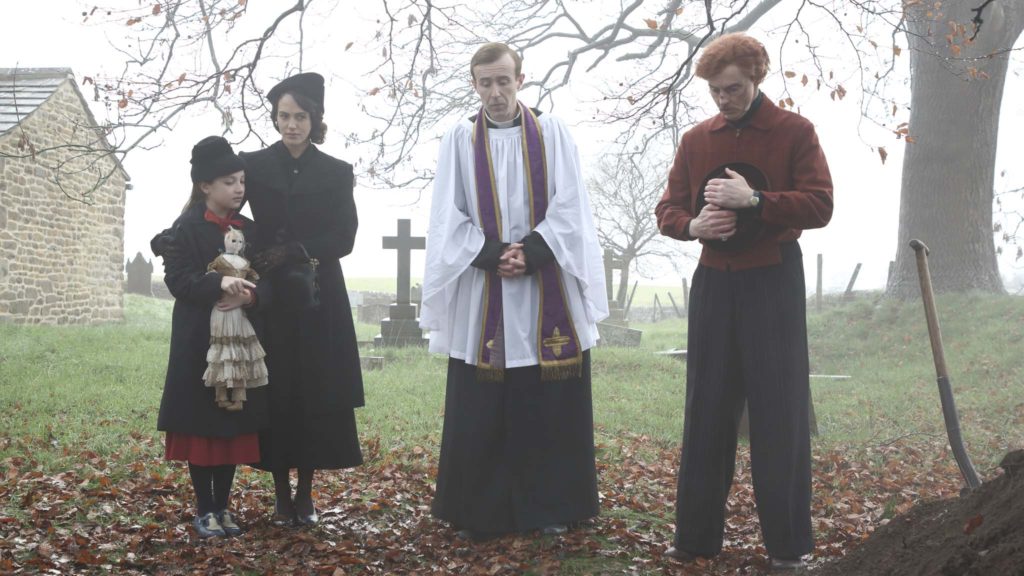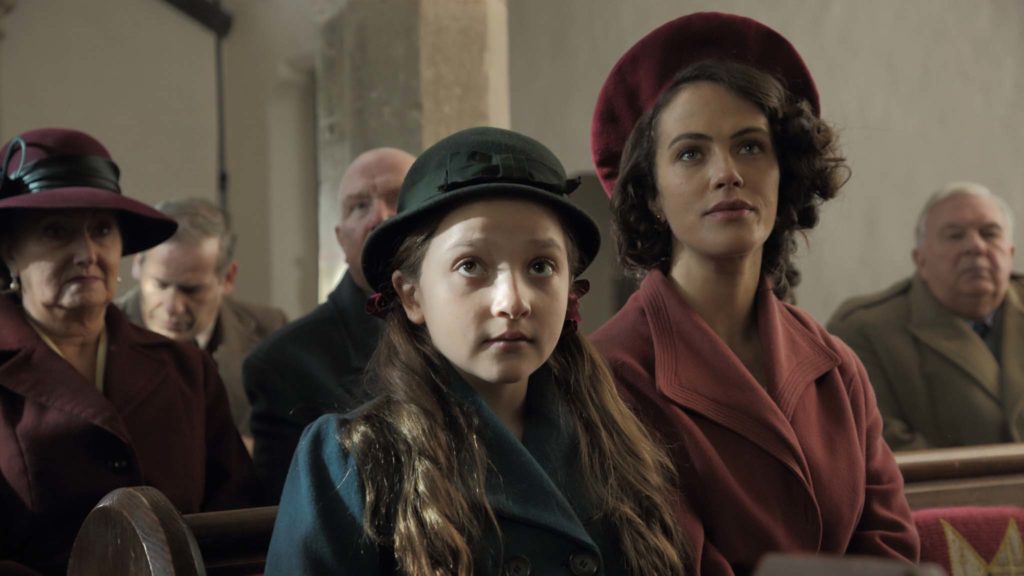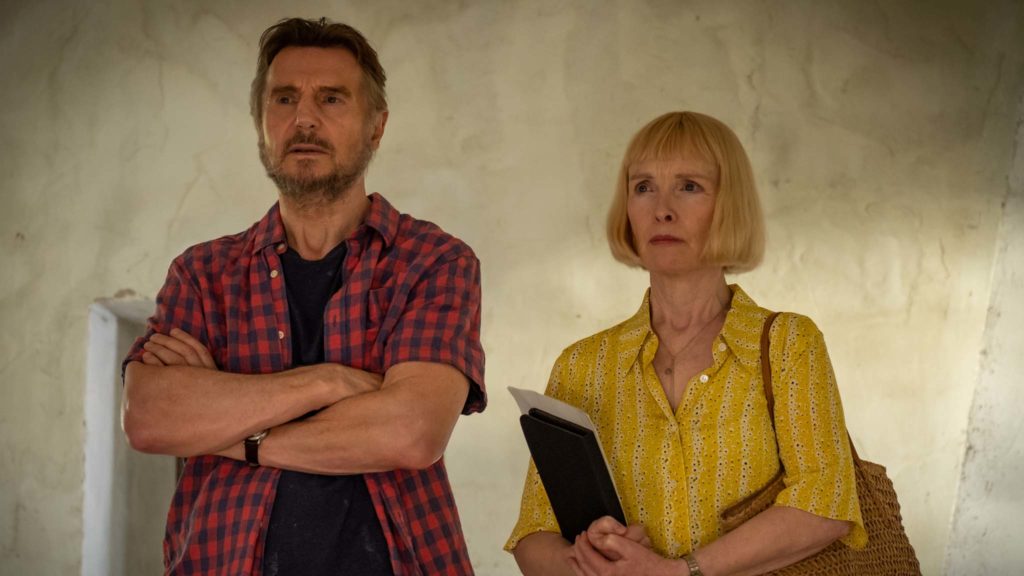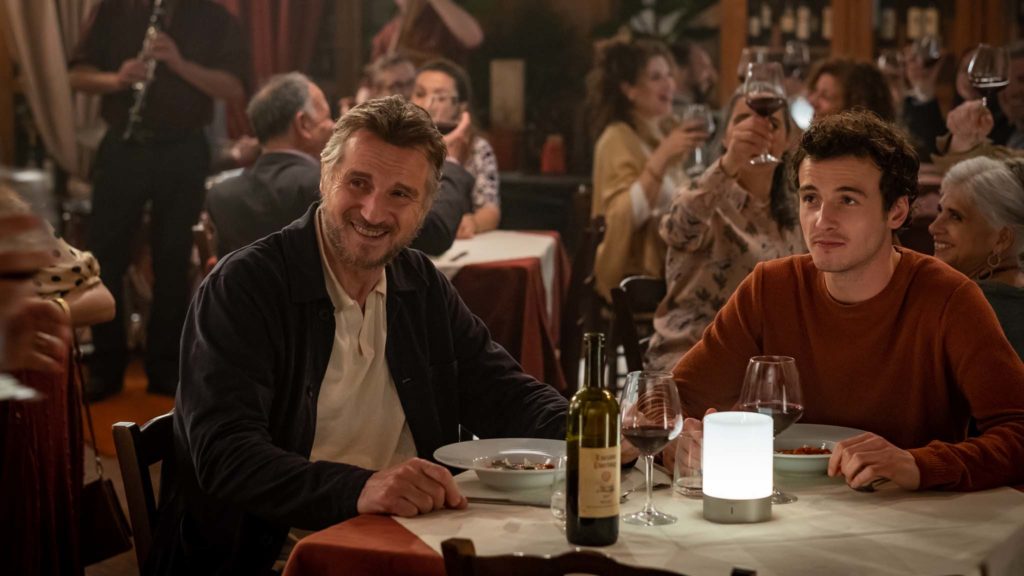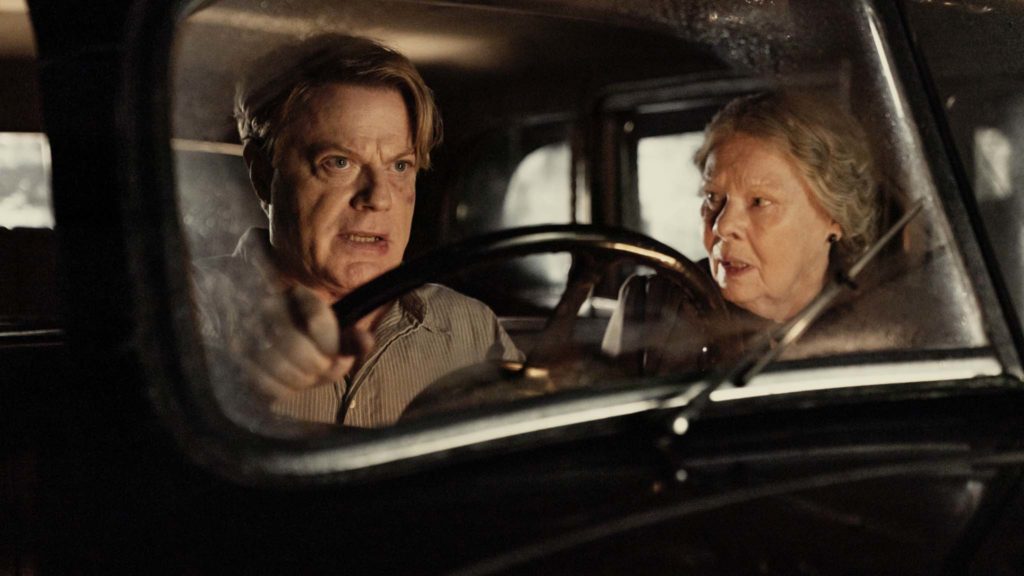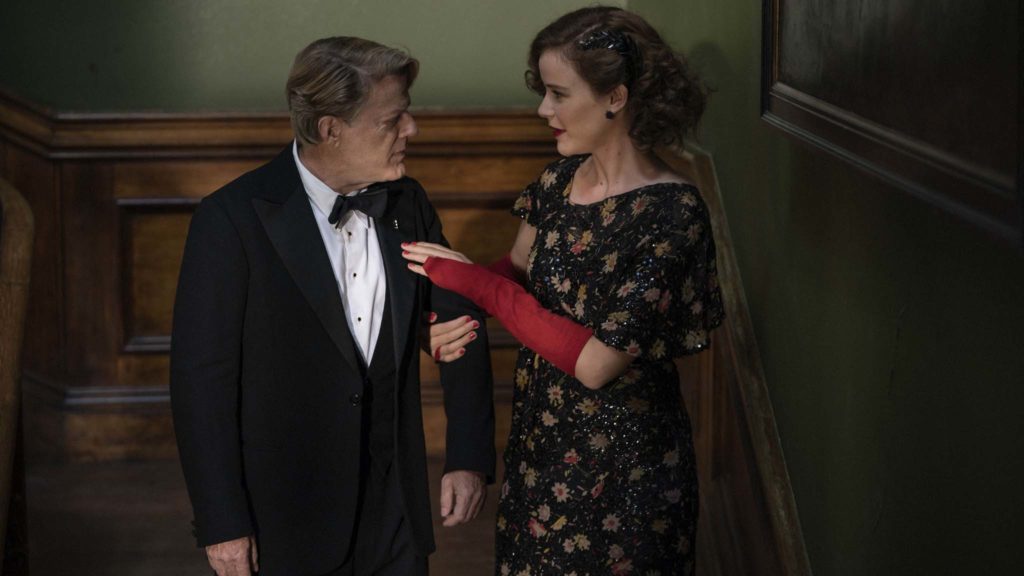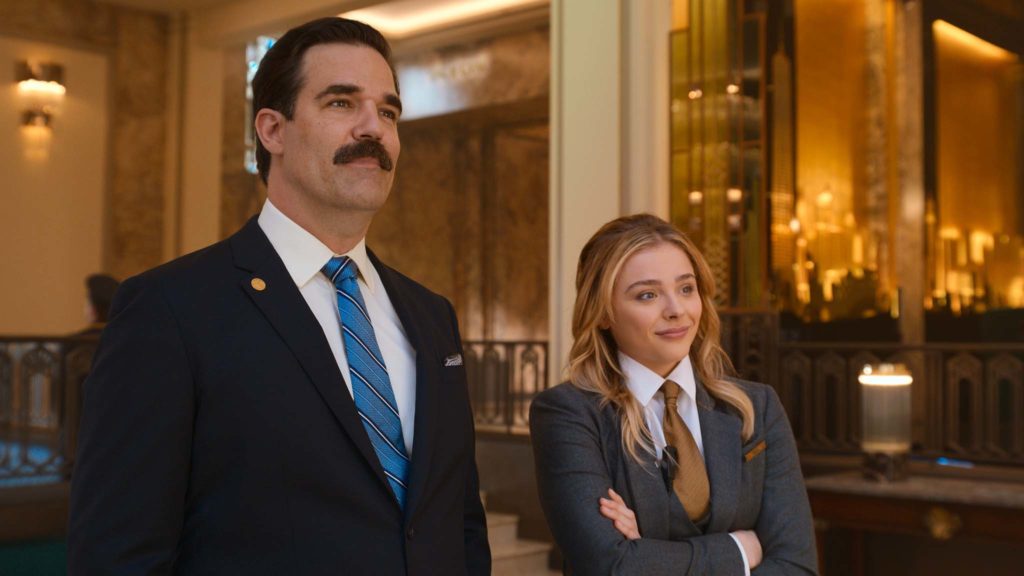Drama
Ammonite (15)
Review: In 2017, writer-director Francis Lee drew heavily on his upbringing on a family farm in West Yorkshire for his multi-award-winning debut feature, God’s Own Country. The emotionally raw love story between a closeted farmer’s son and a Romanian immigrant worker drew favourable comparisons with Brokeback Mountain, likening characters’ inner turmoil to the bitterly cold wind and rain that lashes the undulating earth. Lee attempts a similar feat of cinematic alchemy, this time in the crashing waves along the Jurassic coast of 19th-century Dorset, in Ammonite. Adopting a colour-bleached palette that reflects the characters’ frozen emotional states, this beautifully crafted period romance thaws out nicely with compelling performances from Kate Winslet and Saoirse Ronan.
They portray secret lovers in a Victorian era of groundbreaking scientific discovery, when a woman’s class could permit her to kiss another in front of a servant without fear of retribution. Winslet’s stoic trailblazer, who barely registers emotion as she prowls the beaches in search of fossils, is a stark counterpoint to Ronan’s effervescent woman of learning and privilege, who has been rendered numb by the recent loss of a child. The actresses expertly plumb despair and longing in wordless sequences, captured in bold strokes by cinematographer Stephane Fontaine, who relishes the furious splendour of Mother Nature at work on the rugged landscapes of south-west England.
Pioneering palaeontologist Mary Anning (Winslet) battles the elements to painstakingly excavate nearly complete skeletons and other fossilised treasures from the cliffside. As a woman, she is not credited properly for her discoveries by a patriarchal scientific community, which proudly displays her work in museum cabinets in London. Instead, Mary ekes out a thankless living alongside her perspicacious mother Molly (Gemma Jones) by selling fossils and curios to tourists through the family business in Lyme Regis. Fellow palaeontologist Roderick Murchison (James McArdle) arrives in town with his young wife Charlotte (Ronan), who is in the grip of “mild melancholia”.
He entreats Mary to take care of Charlotte for “four weeks, perhaps five… no more than six” in the hope that the bracing sea air and walks along the coastline will improve his wife’s disposition and reignite her maternal spirit. “I want my bright, funny, clever wife back,” he explains. Mary is reluctant but she needs the money and a local doctor (Alec Secareanu) pricks her conscience when he suggests, “It is a woman’s position to care for a fellow sister, is it not?”
Ammonite doesn’t quite match the heady erotic charge of Lee’s previous film but it’s equally elegant and assured in the distillation of complex feelings. Winslet and Ronan delicately trace their character arcs, culminating in artfully staged scenes of nudity and carnal desire that the relentless barrage of sea spray can’t possibly dampen.
Find Ammonite in the cinemas
Horror
The Banishing (15)
Review: A haunted house in wartime England unleashes predictable jolts in director Christopher Smith’s supernatural horror. Inspired by real-life tales of paranormal activity at Borley Rectory in Essex, The Banishing exhumes a coffin crammed to bursting with hoary tropes: a family home in the grip of a malevolent force, a cherubic child lured away by a vengeful spirit, torchlit processions down dark corridors, defaced religious texts and nightmarish visions of impending doom. Screenwriters David Beton, Ray Bogdanovich and Dean Lines fail to jangle nerves or tingle spines with their tangled tale of isolation and religious fervour, which becomes increasingly convoluted as they unravel the history of a shadowy brotherhood that has spilt the blood of innocents.
There are no skin-crawling shocks to match Smith’s impressive directorial debut Creep set in the labyrinthine tunnels of the London Underground. The spectres of The Turn Of The Screw and The Woman In Black loom large, which achieved far more in similar settings without recourse to cheap scares. Downton Abbey star Jessica Brown Findlay is well cast as the unhinged mother, who risks losing her only child to a pervasive evil that lurks in distorted mirror reflections, which act as portals between the mortal and supernatural realms.
Mild-mannered vicar Linus (John Heffernan) accepts a new posting from Bishop Malachi (John Lynch) to tend to a wayward flock in 1930s rural England as the Nazis march defiantly into Austria. Linus moves his wife Marianne (Brown Findlay) and her young daughter Adelaide (Anya McKenna-Bruce) into an imposing manor house steeped in superstition, unaware of the property’s grim history. Whispered voices and ghostly apparitions hint at a terrible sadness and eccentric psychic researcher Harry Price (Sean Harris) feels compelled to intervene.
He warns Marianne about an evil that “lurks in the long shadow of shame” and urges the increasingly distraught mother to disobey her pious husband. “For the sake of your daughter, get out of that house before it’s too late!” bellows Harry, who is dismissed as a charlatan storyteller by the bishop and his cronies. Deaf housemaid Betsy (Jean St Clair) and handsome chauffeur Frank (Adam Hugill) are drawn into the escalating conflict between Linus and Marianne, who has been spared from scandal and a sanatorium by the holy man. Meanwhile, Adelaide plays games with creepy dolls left behind by the ill-fated previous owner.
The Banishing feels comfortingly familiar and, consequently, never conjures a mood of disquiet as characters wander along night-time corridors or Adelaide creeps up behind her mother during a game of What’s The Time, Mr Wolf? A climactic tumble down the rabbit hole of the scriptwriters’ imaginations is more likely to elicit weary sighs of relief than gasps of terror.
Find The Banishing in the cinemas
Drama
Made In Italy (12A)
Review: More than a decade after Liam Neeson privately mourned the death of actress wife Natasha Richardson in a skiing accident, art mimics heartbreaking life in Made In Italy. The directorial debut of actor James D’Arcy casts the towering Co Antrim-born action man as a taciturn widower crippled by grief opposite his real-life eldest son Micheal. Any ghoulish fascination derived from watching a proud patriarch sift through the tangled emotional wreckage of an accident decades after the fact with his child – “You can’t remember and I can’t forget” – is quickly supplanted by crushing disappointment.
D’Arcy’s script trades in ramshackle cliches rather than piercing psychological insight and a rundown Italian villa is employed as a heavy-handed metaphor for the men’s disintegrating relationship. Neeson deftly navigates his character’s maelstrom of feelings but Richardson can’t match the heavy lifting, which is achingly apparent in the film’s centrepiece where father and son break down with juddering sobs in each other’s arms. Contrivance and familiar dramatic devices facilitate a tear-filled reconciliation against a ravishing backdrop of sun-kissed hills and a picturesque town square that conjure fonder memories of expeditions to A Year In Provence, Cinema Paradiso and Call Me By Your Name. You’ll wish you were there, not here.
Twenty-something Jack Foster (Richardson) is embroiled in an acrimonious split from his wife Ruth (Yolanda Kettle). She is frustrated by his purposeful delay to signing the divorce papers and retaliates by disclosing her parents intend to sell the London art gallery that he manages. “The gallery is my life. I’ve put everything into it!” pleads Jack. “Except money,” she coldly retorts. Ruth gives him one month to meet the steep asking price. Jack hastily organises a trip to Tuscany with his estranged painter father (Neeson) to sell the family’s villa, which has lain dormant for 20 years since the death of his mother Raffaella (Helena Antonio).
A ramshackle road trip to “cheer the place up a bit, get it sold” becomes an extended odyssey of self-healing when Jack discovers the bucolic hillside retreat has fallen into ruination. Local estate agent Kate (Lindsay Duncan) demands urgent repairs so father and son roll up their sleeves with Tuscan tradesmen, punctuated by fiery exchanges about Jack’s faltering ambition: “Those who can, do; those who can’t, run their wife’s gallery.” Perchance, restaurant owner Natalia (Valeria Bilello) can salve a son’s broken heart.
Blessed with picture postcard locations, Made In Italy is easy on the eye but far less generous to the heart. Neeson and Richardson catalyse tepid screen chemistry, slaves to an uneven script which slaloms between broad physical comedy, cloying romance and bellowing rage. Duncan’s fleeting appearances as a purse-lipped realtor add welcome dashes of acidity and spice to an otherwise bland stew.
Find Made In Italy in the cinemas
Thriller
Six Minutes To Midnight (12A)
Review: A real-life finishing school on the south coast of England, which polished German girls between 1932 and 1939, provides an intriguing setting for director Andy Goddard’s slow-burning espionage thriller. Based on a script co-written by Goddard and actors Eddie Izzard and Celyn Jones, Six Minutes To Midnight is an entertaining if occasionally far-fetched yarn cast in the mould of The 39 Steps, which goes on the run with a man wrongly accused of murder as the threat of war looms across Europe. It’s an old-fashioned tale of skulduggery and deception, which engineers dramatic tension by introducing an arbitrary 24-hour countdown to Prime Minister Neville Chamberlain’s declaration of war on Germany.
That invisible ticking clock, replicated in the score of composer Marc Streitenfeld, creates sufficient narrative thrust to carry the plot through some of its least plausible twists, like one laughable example of covert surveillance in front of an open doorway, where the spy can be easily spotted by his targets. A colourful if entirely superfluous supporting performance from Jim Broadbent as a rosy-cheeked bus driver invigorates a chase sequence in the briskly paced second half.
Goddard’s picture opens strongly on August 15 1939, when British spy Mr Wheatley (Nigel Lindsay) realises his cover as an English teacher at Augusta-Victoria College in Bexhill-on-Sea has been blown. He hastily arranges a rendezvous with his superior, Colonel Smith (David Schofield), but an enemy operative intervenes before the agent can share intelligence about the finishing school. A few days later, headmistress Miss Rocholl (Dame Judi Dench) interviews journeyman teacher Thomas Miller (Izzard) as a replacement, working alongside assistant Ilse Keller (Carla Juri) to prepare German girls for their introduction to police British society. “England can be an unforgiving place if you happen to be German,” confides Miss Rocholl, who joins students in vociferous Sieg Heil salutes at the end of radio broadcasts of Hitler’s addresses.
The girls are daughters of high-ranking Nazis and undertake daily physical exercise as well as lessons in deportment, Shakespeare and spoken English. Led by Aryan poster child Astrid (Maria Dragus), the German teenagers greet Mr Miller’s arrival with disdain until they discover he speaks German and can understand their whispered insults. Staff and students are blissfully unaware that the new recruit is also a British spy, charged with unravelling the mystery of his predecessor’s demise.
Six Minutes To Midnight ticks by pleasingly and doesn’t outstay its welcome, milking a few droplets of suspense from the hunt for a red telephone box to make an important call to Whitehall. Izzard isn’t wholly convincing as a skilled pawn of the British government and his haphazard course through the film relies more on luck than skill. Dench lends gravitas to her misguided educator, who learns a valuable lesson about trust on the golden sands beyond Pevensey Castle.
Find Six Minutes To Midnight in the cinemas
Animation
Tom & Jerry The Movie (PG)
Review: It has taken 80 years for Hanna-Barbera’s feuding critters Thomas D Cat and Jerome A Mouse to gate-crash our live-action world as title stars of a big screen escapade a la Who Framed Roger Rabbit. Almost as many minutes pass before the first decent joke lands in Kevin Costello’s script, which trades heavily on the frenetic spirit of the animated shorts by replaying familiar vignettes like the hapless feline succumbing to gravity after a fateful misstep or heavy objects being slammed in his face. The devil and angel on Tom’s furry shoulders (both voiced by Lil Rey Howery) offer conflicting but ultimately redundant guidance because the mad moggie will always surrender to what one character blithely summarises as “millions of years of predator-prey evolution”.
Rough and tumble interludes provide passing distraction from the linear plot of Tom & Jerry The Movie, which uses the wedding of “New York society’s favourite couple” as the springboard for a streetwise hustler without any formal qualifications to prove she has what it takes to flourish in the fast-paced whirl of Manhattan hospitality. The eponymous duo are side-lined for brief stretches to engineer lacklustre human conflict before the obligatory grandstand rush to the altar. Stretched out to a (cat’s) whisker over 100 minutes, Tim Story’s film takes its time stumbling up the aisle.
Enterprising chancer Kayla (Chloe Grace Moretz) successfully passes off someone else’s CV to land a job working with event manager Terence Mendoza (Michael Pena) at the Royal Gate Hotel, which is vaunted as “a beacon of service excellence”. She arrives in the middle of lavish preparations for the nuptials of social media darlings Ben (Colin Jost) and Preeta (Pallavi Sharda), who have incorporated elephants and prancing peacocks into their ceremony. Tensions run high when Jerry moves into the hotel and steals food from the kitchen of Michelin star-tipped chef Jackie (Ken Jeong).
Despairing hotel owner Mr Dubros (Rob Delaney) turns to Kayla to save the day. “I will catch that little mouse and I will be discreet about it,” she promises. Kayla foolishly hires Tom to hunt the pernicious rodent. The ensuing battle royale between four-legged rivals treads on the paws of the groom and bride’s beloved pets, Spike (voiced by Bobby Cannavale) and Toots. “I have a feeling this small Indian wedding will be a great big disaster!” laments Preeta.
Tom & Jerry The Movie presents every animal as a cartoon creation including a trio of singing pigeons, who open proceedings with a cooing rendition of Can I Kick It? Story’s film repeatedly kicks itself by failing to flesh out characters and the destruction wrought by the eponymous double-act becomes repetitive well before Ben and Preeta’s outlandish wedding march. They do, we don’t.
Find Tom & Jerry The Movie in the cinemas


